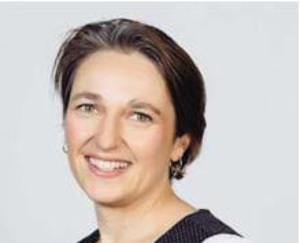

What’s your view when it comes to fees?
There’s been a lot of discussion in the media lately about fees. We continue to believe that members should look at returns after fees. Net returns are what grow one’s retirement balance. At ANZ, we absolutely believe that active management can add value over time. We probably refute the point, 10 years on, that we should just be focusing on fees. We no longer need to just theorise on this, 10 years on. There’s enough data out there. We did an exercise the other day, and pulled the data for the last 10 years’ performance across the default funds. They’ve all been there for 10 years. We know there are some actively managed default funds and some passively managed default funds. It’s reasonably scary that, over 10 years, there’s a 247-basis point difference in performance after returns after fees. Remember, 100 basis points gives you $100,000 increase in your retirement outcome. I guess if we’re saying 247-basis point difference for two people, in two different growth funds, we’re talking about nearly a quarter of a million dollars difference in their nest egg at the age of 65.
Is it misleading when people are focused on fees alone, rather than the bigger picture?
I think that’s right. Fees is just one lever. Certainly, looking at the comparison across the 10 years, those which are a little bit more expensive have given greater returns after fees. That’s where I think the discussion needs to go. We need to help New Zealanders understand that.
Is it about understanding the balance between high-fee products and higher returns?
Fees are important. You get what you pay for. If fees are important to you, that is one driver. Again, people need to look at what the fee is, what they get for that fee, and what they are therefore trying to achieve with the product that they are buying.
Should financial advisers be embracing KiwiSaver as a core part of their business? Where do you see financial advisers fitting in with ANZ in the future?
There are a lot of really good financial advisers out there, who are embracing KiwiSaver. They embrace KiwiSaver to actually provide more holistic solutions to their customers. In the future, there is absolutely going to be a need for advisers. The scariest thing is that only a third of people probably know what their retirement savings outcome is going to be, and have got a plan for it. If you want to get to where you want, you’ve got to have a plan to get there.
But are advisers leaving something on the table in their businesses by not incorporating it?
KiwiSaver is one of many ways that people are saving for their futures. Advisers are in a great position, because they support more than just KiwiSaver. They have other products - some more holistically, too – across mortgages, insurance, etc.
ANZ offered free advice to a number of its members. Do you want to tell us about your results?
That’s right. We’re very fortunate to be in the position where we have a number of different channels; pure adviser channel, direct channel, and default members. Over 10 years, we’ve seen the best results coming through our advised customers - those people who are meeting face-to-face with someone, getting advice on their KiwiSaver and probably something else, as well. They’re making the right decision for them, that are helping to build their balances. It’s those that are working through our direct channel and have sought advice and taken action. We recently put an advice offering out there to our NZ KiwiSaver customers, and only three out of 3,000 took up the option of advice.
Were you surprised by that?
Disappointed. One wants a plan for their future, and one makes better decisions by talking to someone. I’m disappointed. There’s probably a number of elements. New Zealanders seek advice in many different ways. Some like to do it themselves, with a big DIY mentality. Some like to speak to someone. Some actually think they’ll get around to that later. Balances are still quite small in KiwiSaver in New Zealand. The average balance across the scheme is about $14,000. Maybe we’ll get to a point where we see more people seek advice in the future. I hope we do.
You recommended that at age 40, advice should be given?
There are a few critical points in one’s life where you should seek advice and make sure you are on the right track for their retirement. At the age of 40, you’re generally in your home and are ready to start thinking about the future. You’ve got 25 years until the mythical retirement age! Another point is probably at age 55, 10 years out from the current retirement age. And, of course, at age 65. That is critical. You can’t spend the first 20-40 years managing your money, and then at the age of 65 be told, “Here you go, over to you!” It’s critical that peoples start thinking about what happens when they hit age 65.
You also recommend that advice should become part of the model?
Yes.
Who should ensure that happens?
The providers have an obligation to ensure advice is available. There are many ways to do that, whether it be technology, face-to-face, or telephone. Also through independent advisers, who add a lot of value to members, or through their own advisers. It should absolutely be built into the system.
| « Fisher Funds: Industry should pull together | What next for KiwiSaver » |
Special Offers
No comments yet
Sign In to add your comment

© Copyright 1997-2026 Tarawera Publishing Ltd. All Rights Reserved